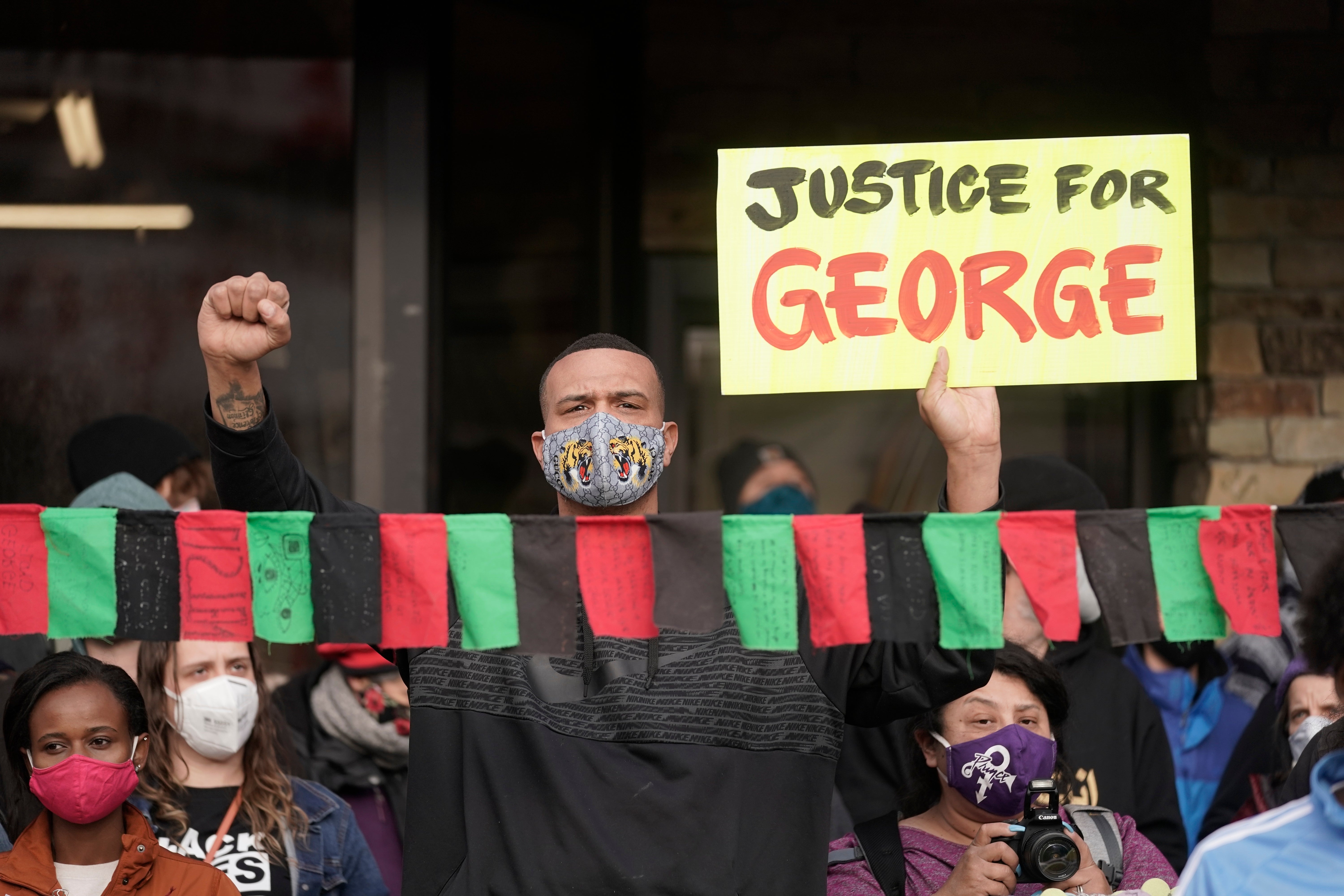George Floyd verdict: 5 other court cases that changed the course of history
Courtroom dramas from the world’s back catalogue.

Your support helps us to tell the story
From reproductive rights to climate change to Big Tech, The Independent is on the ground when the story is developing. Whether it's investigating the financials of Elon Musk's pro-Trump PAC or producing our latest documentary, 'The A Word', which shines a light on the American women fighting for reproductive rights, we know how important it is to parse out the facts from the messaging.
At such a critical moment in US history, we need reporters on the ground. Your donation allows us to keep sending journalists to speak to both sides of the story.
The Independent is trusted by Americans across the entire political spectrum. And unlike many other quality news outlets, we choose not to lock Americans out of our reporting and analysis with paywalls. We believe quality journalism should be available to everyone, paid for by those who can afford it.
Your support makes all the difference.In one of the most emotionally charged and high-profile trials of recent times, Derek Chauvin has been found guilty of murdering George Floyd in Minneapolis in May 2020.
The case has taken on huge importance, both real and symbolic, amid ongoing struggles around racial equality and police brutality, and attracted media attention in all corners of the world.
Here are a few other trials that changed the course of history, from the Italian Renaissance to the ashes of the Second World War…
1. The Trial of Galileo, 1633
From the moons of Jupiter to the phases of Venus, Galileo Galilei spent the first few decades of the 17th century on a voyage of scientific discovery, enraging the Catholic Church with a series of blasphemous astronomical revelations. Particularly heretical was his assertion that the Earth revolved around the sun – a claim so heinous it landed him in the dock in front of the Roman Inquisition in 1633.
Modern lawyers would be none too impressed with the courtroom, while modern scientists would despair at the verdict. Galileo was tried by a panel of theologians under threat of torture, and sentenced to house arrest for the rest of his days.
More than 350 years later, in November 1992, the Catholic Church finally officially agreed that Galileo was right about the Earth moving round the sun, with Pope John Paul II making the declaration at a ceremony in Rome.
2. The Scopes Monkey Trial, 1925
Another court case that put science in the dock, the Scopes Monkey Trial pitted the theories of evolution against the fundamentalist forces of creationism. High school teacher John Scopes stood accused of teaching human evolution in a state-funded school – knowingly breaking Tennessee’s Butler Act in order to test the law in court.
Both sides recruited heavyweight orators: former Secretary of State William Jennings Bryan ran the prosecution, while celebrity defence attorney Clarence Darrow spoke for Scopes. The judge opened the trial by quoting the book of Genesis – arousing suspicions of bias – while Darrow raised eyebrows by cross-examining prosecutor Bryan, and questioning whether Eve could, scientifically, have come from Adam’s rib.
Amid a massive media storm, Scopes was convicted, but he was fined just $100 and saw his sentence overturned on a legal technicality in 1927. Finally, in 1968, the US Supreme Court overturned a similar law in Arkansas on the grounds it violated the First Amendment, which protects free speech.
3. Woolmington vs DPP, 1935
In 1934, Reginald Woolmington cycled to his mother-in-law’s house and killed his estranged wife with a shotgun. Woolmington said the gun had gone off by accident, a claim deemed so laughable by the judge that he charged Woolmington to try and prove the killing had been accidental.
The jury spent barely an hour delivering a guilty verdict and death sentence, but the defence appealed, arguing that the judge had directed the jury to assume guilt.
To the surprise of many, including the man himself, Woolmington’s conviction was quashed, consolidating the presumption of innocence once more in law. In a dictum now heard in law school lecture theatres across the land, the judge declared that “a golden thread” ran through the whole of criminal law: “that it is the duty of the prosecution to prove the prisoner’s guilt…”
4. The Nuremburg Trials, 1945-1946
How do you even begin to prosecute arguably the largest mass of cruelties mankind has ever experienced? This was the question facing the allied forces in 1945, who found themselves in charge of several of history’s most evil men after the fall of Berlin ended World War Two.
Military tribunals held under international law, the Nuremberg Trials saw high-ranking Nazis like Hermann Goering and Rudolf Hess tried and sentenced for their crimes, and set a number of historic firsts in doing so. The Nuremburg Trials were the first to ever prosecute genocide under international law, and set a template for the nascent United Nations to legislate on war crimes and crimes against humanity.
5. The Trial of Al Capone, 1931
Now a byword for nabbing a notorious criminal on a lesser – but provable – charge, in 1931 notorious gangster and crime boss Al Capone was sentenced to 11 years in jail after being convicted for five counts of tax evasion.
The judge switched out the entire jury on the morning of the trial to sidestep bribery, and sequestered them overnight to keep them from the clutches of Capone’s men.
The case broke Capone’s hold on organised crime in Chicago, and proved that the authorities had more than one recourse to justice.